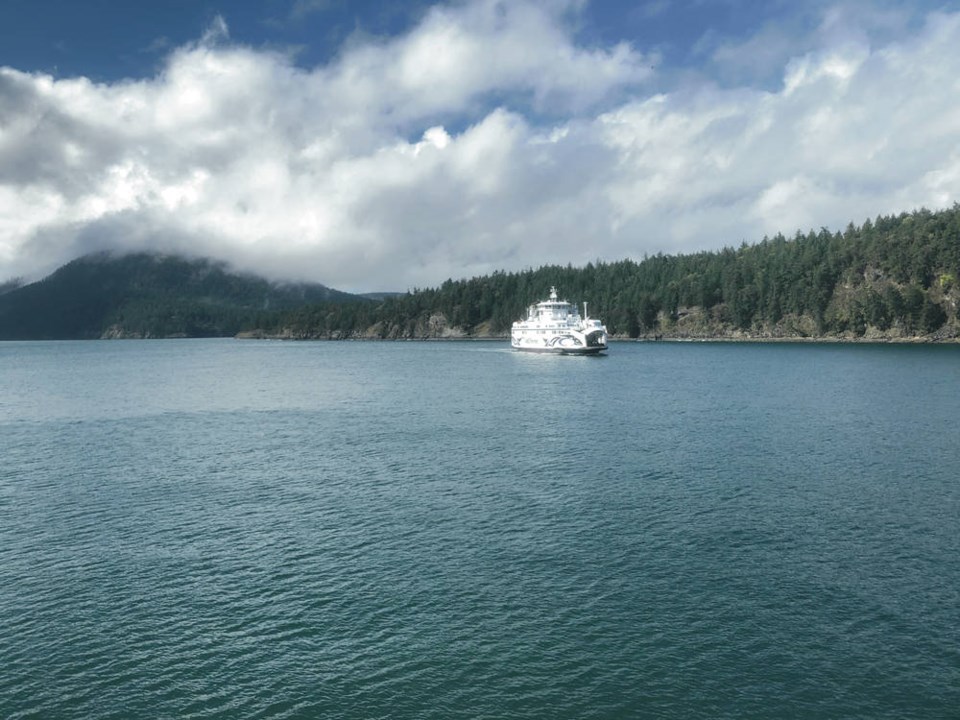A commentary by a Salt Spring Island writer who has worked for numerous Gulf Islands publications.
What will the Gulf Islands look like in one or two decades? The answer to this question will depend largely on decisions taken next week by Islands Trust Council, the political body charged with creating overarching policy for the spectacular archipelago of 13 major islands and more than 450 smaller islands in the Salish Sea.
Battle lines are forming in the review of the Policy Statement. On one side are trustees who want the Islands Trust, established by special legislation in 1974, to return to its original mandate of protecting ecosystems and the rural character of the islands. On the other are trustees who believe the agency can fulfil environmental, social and economic goals simultaneously.
At issue in the Policy Statement are the nebulous words “unique amenities” whose definition was expanded in 1994 to include “healthy communities and culture” despite there being no mention of such responsibilities in the original legislation, the Islands Trust Act. The implications are significant as all community plans within the Trust Area must comply with the Policy Statement.
Leading the charge to make the environment the Trust’s top priority is Pender Island Trustee Steve Wright, who has filed motions to delete the words “healthy communities and culture” from the Policy Statement. “How did we go from protecting the environment from potentially harmful human activities to protecting human activities that potentially harm the environment?” he asks.
“The Trust Act specifies that trustees’ decisions on land use must be based upon the preservation and protection of the environment, not on community needs. The inclusion of community needs in the definition promotes a mistaken understanding that the Trust is a “local government” and carries residents’ expectations far beyond what the Trust, a “public trust,” is responsible for.”
Housing has become a particularly contentious issue as more and more people seek affordable housing on the islands. Rental accommodation is scarce, resulting in untold numbers of illegal, unsafe and environmentally harmful dwellings across the Trust Area. On Salt Spring, where real estate prices rival those in Victoria, the situation is so dire there is a standing resolution instructing bylaw enforcement officers to take action only if there is more than one unlawful dwelling on a lot. Nobody wants the heartless task of evicting people from their homes.
Salt Spring Trustee Laura Patrick, armed with a stack of housing reports, has become a vocal proponent of affordable housing and believes the Trust should intervene to help local employees, young families, seniors and others. She recently wrote: “Unless we resolve Salt Spring’s shortage of affordable, attractive housing this island will become moribund, a rustic theme park of the middle aged and middle class that imports its daily labour from off island.”
The downside is that this would lead to greater densities on an island that already has water shortages and many undeveloped lots. It also sidesteps the enforcement issue and overlooks two inescapable realities: demographics are invariably determined by market forces, and the press of humanity from nearby urban areas is never-ending. Whatever is built today will be inadequate tomorrow.
Wright has warned Trust Council about stepping further into the housing quagmire: “For Council to become more involved in this issue is, in my opinion, driven by our emotional response to it. Even to give the public the impression that we can do something to create housing is a mistake, if not a disservice. We cannot hold land. We do not have the funding. We do not have the authority.”
He emphasizes that, even if his motions are passed, local trustees will still have the power to address community needs, including housing, but that they would have to give priority to environmental policies when deciding on rezoning applications. “To make their decision based solely on the needs of the community, I believe, contravenes the Trust Act and may be open to a legal challenge.”
Parallel to Wright’s efforts to refocus attention on the environment is a motion to commission an external review of the Trust’s performance – a report card on the past 47 years of governance. That motion was carried by a vote of 14-12 in December. Funding was also approved but will be discussed again at the upcoming meeting of the Finance Planning Committee.
Wright, who is aware of lobbying by some trustees to derail both initiatives, indicates his goal is simply to encourage the Trust to re-examine its legislated duties. “Council and our communities need to make some tough decisions, decisions that have been continually put off. Putting them off does not make them go away, it merely makes them harder to make when we no longer have any options.”



